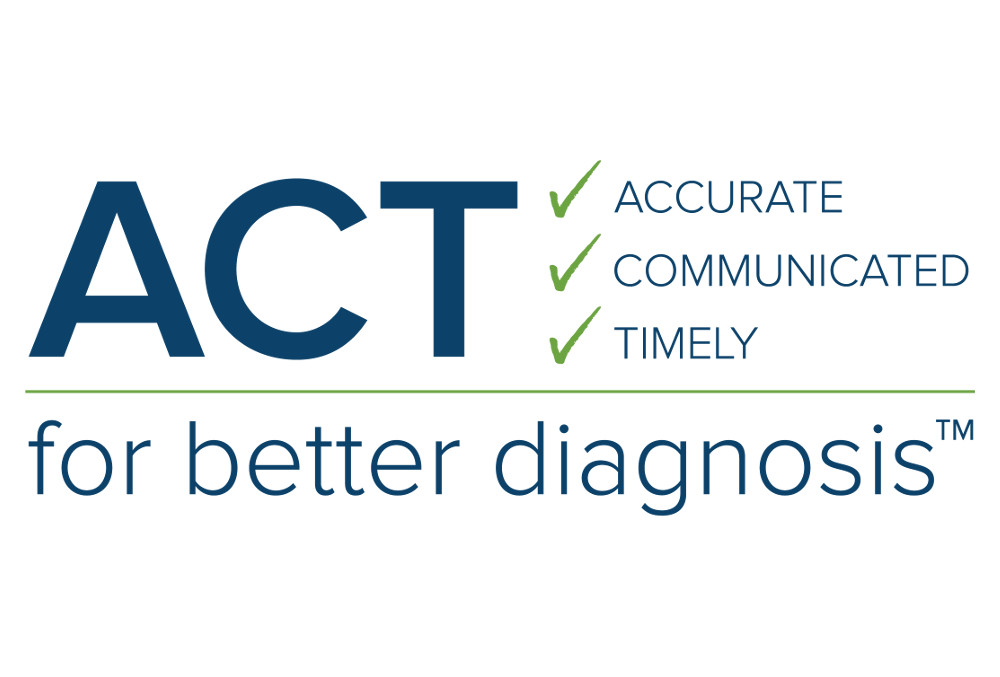ACT for Better DiagnosisTM
In September 2018, the Coalition to Improve Diagnosis, convened by the Society to Improve Diagnosis in Medicine (SIDM), launched a targeted effort to increase awareness of the need to improve Accuracy, Communication and Timeliness of diagnosis. ACT for Better Diagnosis™ aims to improve the diagnostic process by identifying and showcasing practical steps that everyone throughout the healthcare system—patients, physicians, nurses, health system leaders, laboratory scientists, and others—can take to improve diagnosis.
Working collaboratively over several months, more than 60 leading healthcare and patient advocacy organizations identified several obstacles they believe impede diagnostic accuracy, including:

- Incomplete communication during care transitions—When patients are transferred between facilities, physicians, or departments, there is potential for important information to slip through the cracks.
- Lack of measures and feedback—Unlike many other patient safety issues, there are no standardized measures for hospitals, health systems, or physicians to understand their performance in the diagnostic process, to guide improvement efforts, or to report diagnostic errors. Providers rarely get feedback if a diagnosis was incorrect or changed.
- Limited support to help with clinical reasoning—With hundreds of potential explanations for any one particular symptom, clinicians need timely, efficient access to tools and resources to assist in making diagnoses.
- Limited time—Patients and their care providers overwhelmingly report feeling rushed by limited appointment times, which poses real risks to gathering a complete history that is essential to formulating a working diagnosis and allows scant opportunity to thoroughly discuss any further steps in the diagnostic process and set appropriate expectations.
- The diagnostic process is complicated—There is limited information available to patients about the questions to ask, whom to notify when changes in their condition occur, or what constitutes serious symptoms. It’s also unclear who is responsible for closing the loop on test results and referrals, and how to communicate follow-up.
- Lack of funding for research—The impact of inaccurate or delayed diagnoses on healthcare costs and patient harm has not been clearly articulated, and there is a limited amount of published evidence to identify what improves the diagnostic process.
The launch was a standing room only event at the National Press Club in Washington, D.C.
The Coalition and the ACT for Better Diagnosis™ initiative are made possible through the generous support of the Gordon and Betty Moore Foundation and The Mont Fund.
What ACTion Are You Taking?
Learn more about the individual actions members of the Coalition to Improve Diagnosis are taking to improve the diagnostic process.
When and Where Inaccurate or Delayed Diagnoses Happen
On July 11, 2019, experts came together on Capitol Hill to offer insights on what can be done to reduce the impact and highlight Congress’ role in reducing the physical and financial toll that inaccurate and delayed diagnoses take on Americans. Watch the webcast above.
